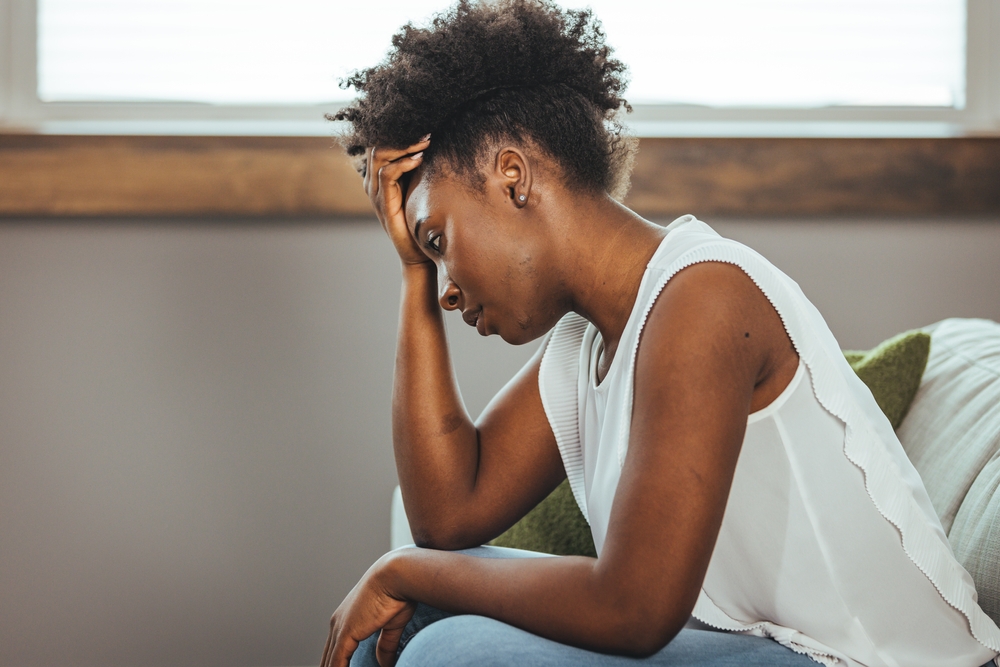80% say microaggressions happen in their organisation but only 3% say racial microaggressions are regularly called out by colleagues.
World Mental Health Day is on Tuesday the 10th of October. The theme for 2023 is ‘Mental health is a universal human right’.
This is a powerful theme that highlights how everyone in the world deserves to experience a life where their mental health does not make them different to others.
In the UK, 1 in 4 people in the UK will experience a mental health problem each year and according to an NHS Survey, Black, Asian and Minority Ethnic communities are at a higher risk of developing a mental health problem in adulthood but are less likely to receive support for their mental health.
According to the charity, Rethink Mental Illness, one of the reasons why ethnically diverse people experience high rates of mental illness is because of the mental effects of bias, discrimination and racism.
What does this tell us about the mental impact of racial microaggressions in the workplace?
A microaggression is a statement, action or incident that is seen as an indirect, subtle or discrimination against members of a marginalised group.
At our recent event, 80% of attendees said racial microaggressions happen in their organisation.
Here are a few examples of what racial microaggressions are:
- “I’m surprised at how articulate you are.”
- “But where are you really from?”
- “Why does your hair look like that?”
- “I can’t be racist because I don’t see colour.”
Though we use the term microaggressions to describe the statements above, the mental impact of receiving a racial microaggression is not micro at all.
In a recent Race Equality Matters poll completed by over 300 people, 53% of respondents said racial microaggressions make them feel angry while a further 22% said racial microaggressions make them anxious.
Other respondents commented that they don’t just feel anger but also anxiety, isolation and depression.
In fact, the average person experiences racial microaggressions many times in their lifetime.
This is alarming when we consider how much it impacts the mental health of ethnically diverse people. No wonder racial microaggressions are often described as a death by a thousand cuts.
What are organisations doing about this?
It doesn’t always seem clear what organisations are truly doing to combat racial microaggressions in the workplace. Despite the traumatic events of 2020 and the public declarations of support that followed, it still doesn’t look like action has been taken to support ethnically diverse colleagues in the workplace.
At REM, we asked our community if their organisation supports the mental health and wellbeing of ethnically diverse colleagues and over a third said they received none, not enough or only a ‘little’ bit of mental health support in the workplace.
For some, it is difficult to receive mental health support in the same organisation they experience racial microaggressions in. Or, in organisations where racial microaggressions happen, senior leaders may not know or see why mental health and wellbeing support is necessary for ethnically diverse colleagues.
What are colleagues, allies and friends doing about this?
In a REM poll, only 3% said racial microaggressions are regularly called out in their organisation whilst 24% said it is hardly ever called out.
These are worrying stats because when colleagues, allies and friends don’t openly challenge the racial microaggressions they hear in the workplace, it causes double the damage. It lets down the person who is experiencing the trauma of racial microaggressions and can make them feel even more isolated.
It is important for colleagues to be active and not passive allies in the fight for racial equality. That means colleagues should openly call out racial microaggressions and play an active role in creating an inclusive workforce.
The two powerful messages this article highlights is that:
1) Racial discrimination and inequality in the workplace must be addressed with actions and not just words. When this happens, it becomes unlikely that an ethnically diverse colleague will join an organisation where racial microaggressions happen. If organisations take staff mental health and race inequality seriously then tackling racial microaggressions can be nailed in one go.
2) Colleagues and friends must become active allies and openly challenge racial microaggressions when they hear it. Active allyship means taking consistent and meaningful action to make sure ethnically diverse colleagues feel safe and included. Colleagues do this when they openly challenge racial microaggressions and support those who experience them.
Race Equality Matters is currently developing a new solution called #It’sNotMicro which provides a step-by-step guide on how senior leaders, allies and colleagues can openly challenge microaggressions when they hear it in the workplace.
Being more informed about what microaggressions are, its impact and how to call it out are all important steps in creating anti-racist organisations which improves the mental health of ethnically diverse colleagues.
The theme of Mental Health Day is ‘Mental health is a universal human right’ and, for ethnically diverse people, that is only possible when racial equality is a universal human right too.
This month is Black History Month and so it is even more important that we show up for our ethnically diverse colleagues and take action when things are said in the workplace that could affect their mental health.
Active allyship is needed more than ever. Let’s Listen, Act and create Change!
Would your organisation take part in our #It’sNotMicro solution?
To find out more register at our next FREE event here
Bibliography:
NHS Psychiatric Morbidity Survey: Survey of Mental Health and Wellbeing, 2016: https://webarchive.nationalarchives.gov.uk/ukgwa/20180328140249/http:/digital.nhs.uk/catalogue/PUB21748
Image – Shutterstock

